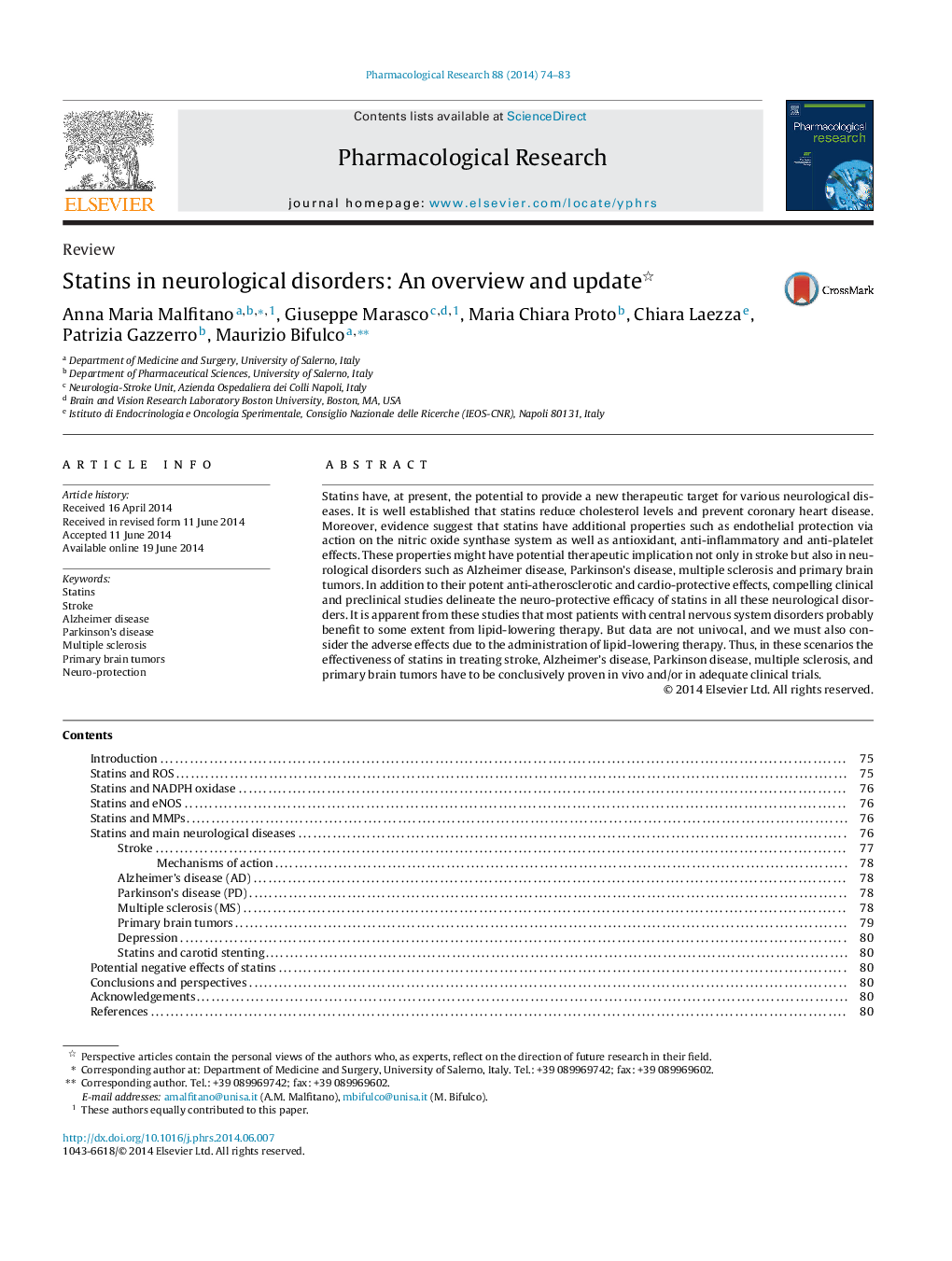| Article ID | Journal | Published Year | Pages | File Type |
|---|---|---|---|---|
| 2561962 | Pharmacological Research | 2014 | 10 Pages |
Statins have, at present, the potential to provide a new therapeutic target for various neurological diseases. It is well established that statins reduce cholesterol levels and prevent coronary heart disease. Moreover, evidence suggest that statins have additional properties such as endothelial protection via action on the nitric oxide synthase system as well as antioxidant, anti-inflammatory and anti-platelet effects. These properties might have potential therapeutic implication not only in stroke but also in neurological disorders such as Alzheimer disease, Parkinson's disease, multiple sclerosis and primary brain tumors. In addition to their potent anti-atherosclerotic and cardio-protective effects, compelling clinical and preclinical studies delineate the neuro-protective efficacy of statins in all these neurological disorders. It is apparent from these studies that most patients with central nervous system disorders probably benefit to some extent from lipid-lowering therapy. But data are not univocal, and we must also consider the adverse effects due to the administration of lipid-lowering therapy. Thus, in these scenarios the effectiveness of statins in treating stroke, Alzheimer's disease, Parkinson disease, multiple sclerosis, and primary brain tumors have to be conclusively proven in vivo and/or in adequate clinical trials.
Graphical abstractFigure optionsDownload full-size imageDownload high-quality image (145 K)Download as PowerPoint slide
